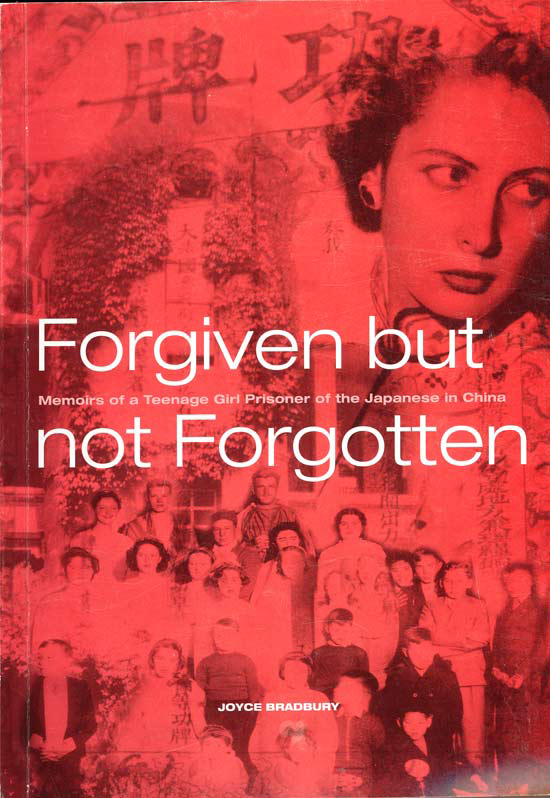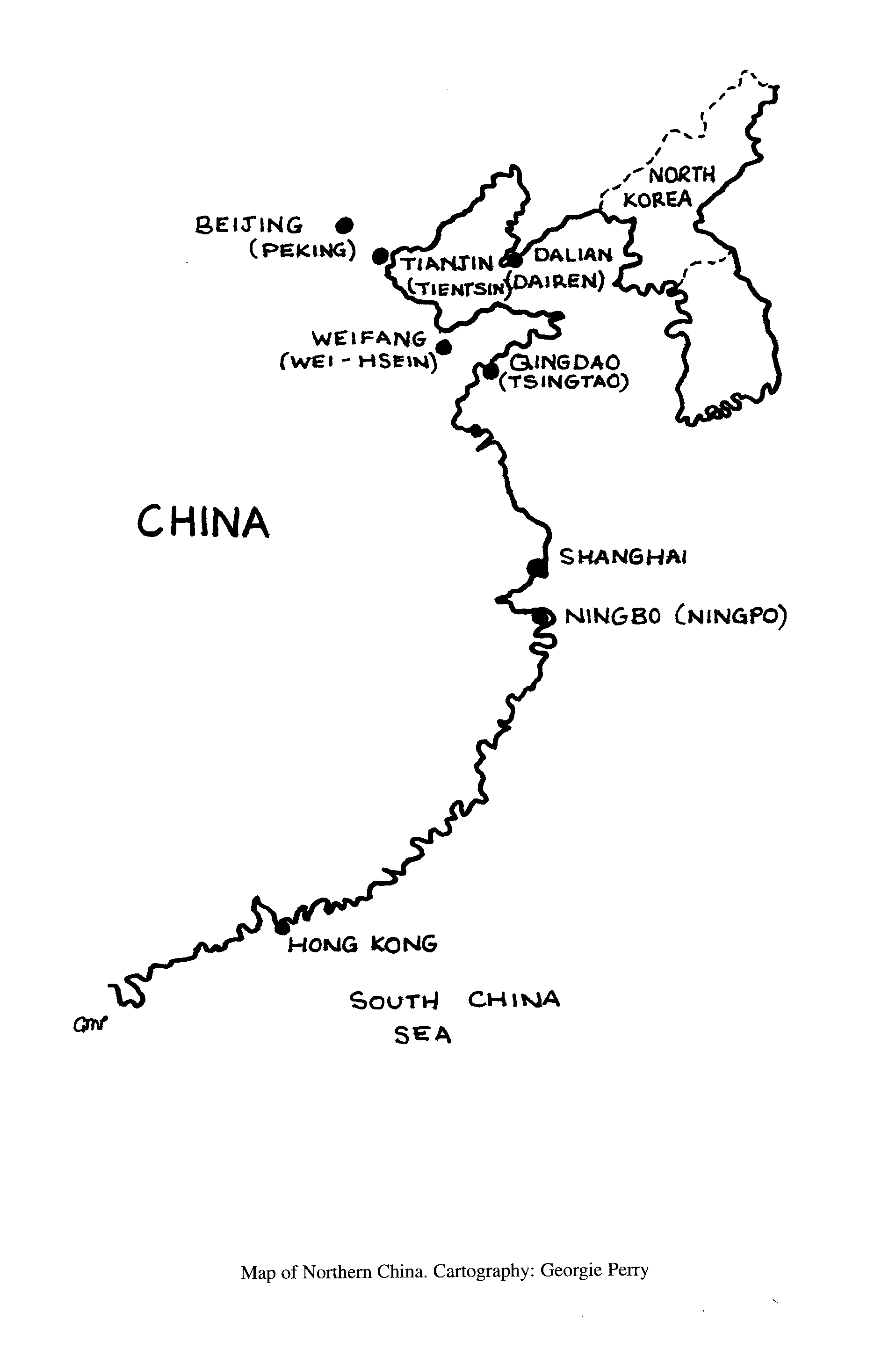
- by Joyce Bradbury, née Cooke
[Excerpts] ...
 [...]
[...]
As we began to settle down, the various committees allocated duties to everybody over the age of 14. Doctors and nurses were assigned to hospital duties and caring for the health of people while tradesmen worked in the carpentry and other shops. In general, the women had to peel vegetables and the men worked in the kitchens irrespective of their former callings.
The clergy also worked. They performed kitchen duties, stoked hot water boilers for the showers and pumped water which had to be done 24 hours a day. They also helped with heavy work such as lifting when required. One Catholic priest, Father Schneider, was formerly a shoemaker and he was put in charge of the shoe repair shop. Some of the nuns worked in the kitchen, cleaning vegetables, and also taught in the schools alongside Protestant missionaries. Some nuns nursed and some volunteered for the terrible job of clearing overflowing toilets, which they did with grace and dignity.
The nuns wore veils over a stiff cloth frame called a “coif” on their heads when they first arrived. After a while, they dispensed with the coifs and just wore a veil pinned to their hair. Many of the Protestant clergy had added tasks. They had to tend to the needs of their families, of which there were quite a few.
Everybody I knew worked hard for the benefit of the whole camp and I am not aware of any problems with persons not pulling their weight. There were four kitchens and dining rooms. Because of the food supply situation, it was a big job trying to satisfy the hunger of the inmates.
Sadly, that was never really achieved. My father, a qualified accountant, was given cooking duties in a communal dining room where meals were cooked and served in relays. Mum also worked in the kitchen and made craft goods.
[excerpts] ...
Some inmates brought canned food with them.
One of our family’s good friends, a wealthy lady, brought a fairly large quantity of canned and preserved food into the camp and although she had been allocated work by the committee, she preferred to employ others to do her share on the payment of her food to them. Eventually, she ran out of supplies and then had to do her share of work. We kept in touch with her until she died several years ago. In her later years, she showed us a thick coil of malleable gold which could be worn around her wrist saying: “If ever I have to go into camp again, I will take this gold with me and cut off little bits to use to buy food.”
[excerpts] ...
One of the perks of working in the food areas was taking home extra food. My father was able to bring home dripping once in a while which we ate on our bread. We were always hungry and fantasised about food. Some people thought about milk and sugar because we had to drink tea without milk or sugar. The tea was ladled out to us from large pots. My mother missed her coffee and we all missed bacon and eggs. I do not remember anyone putting on weight. Some inmates were caught by other inmates stealing vegetables, bread and other foods.
They appeared before a camp committee which decided whether they were guilty or not. I don’t remember what punishments were inflicted except the names of the guilty were put on the notice board.
[excerpts] ...
There was no piped water in the camp but there were wells. To cater for the whole camp of some 2000 people the well pumps had to be hand-operated 24 hours a day and a number of men were kept at this work. We were allowed one shower a month in a communal bathroom. The bathroom consisted of about 12 showers and three or four hole-in-the-floor toilets. We were rostered alphabetically for hot showers. My second cousin Bob (Bob Cooke whose father ― my great-uncle Edward ― was also in the camp) was one of the stokers of the boilers.
[excerpts] ...
Work and working hours:
… varied. In general, one day off, every three days for the men, and every two days for the women.
Labour is normal for our community life (cleaning, coal transport, peeling of vegetables, etc. ). It is advisable for men to take overalls with them, aprons or pinafores for the women and also, clogs for everyone. To be mentioned: there are three distinct kitchens and the one for the Tientsin folks is the worst of all.


http://www.weihsien-paintings.org/books/ForgivenForgotten/Book/ForgivenNotForgotten(WEB).pdf
#








